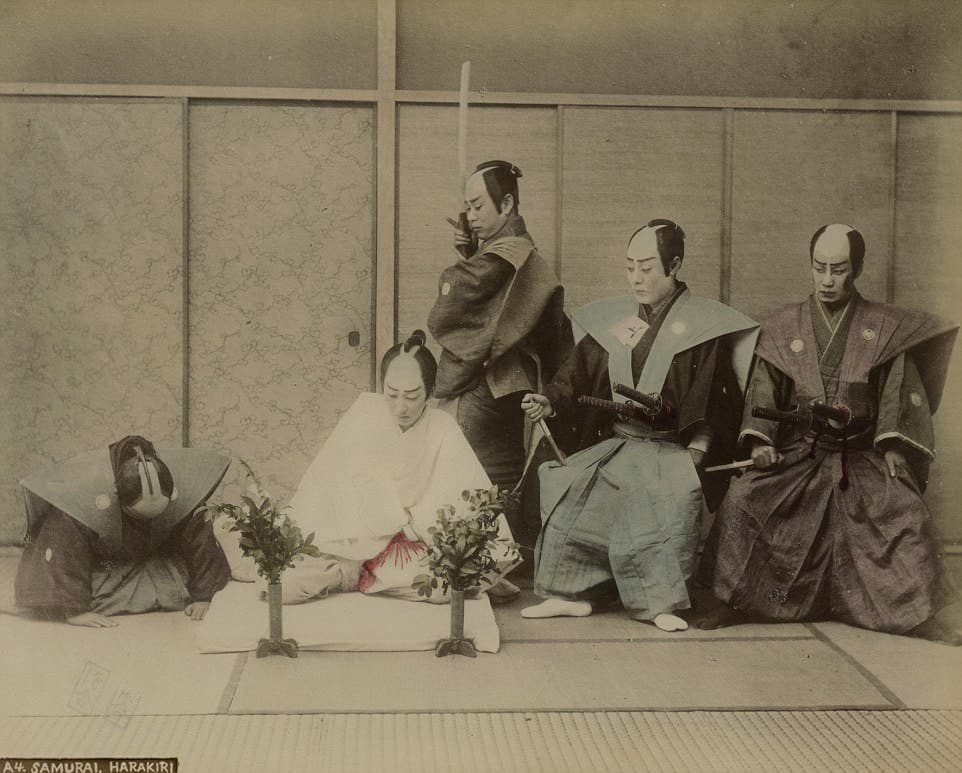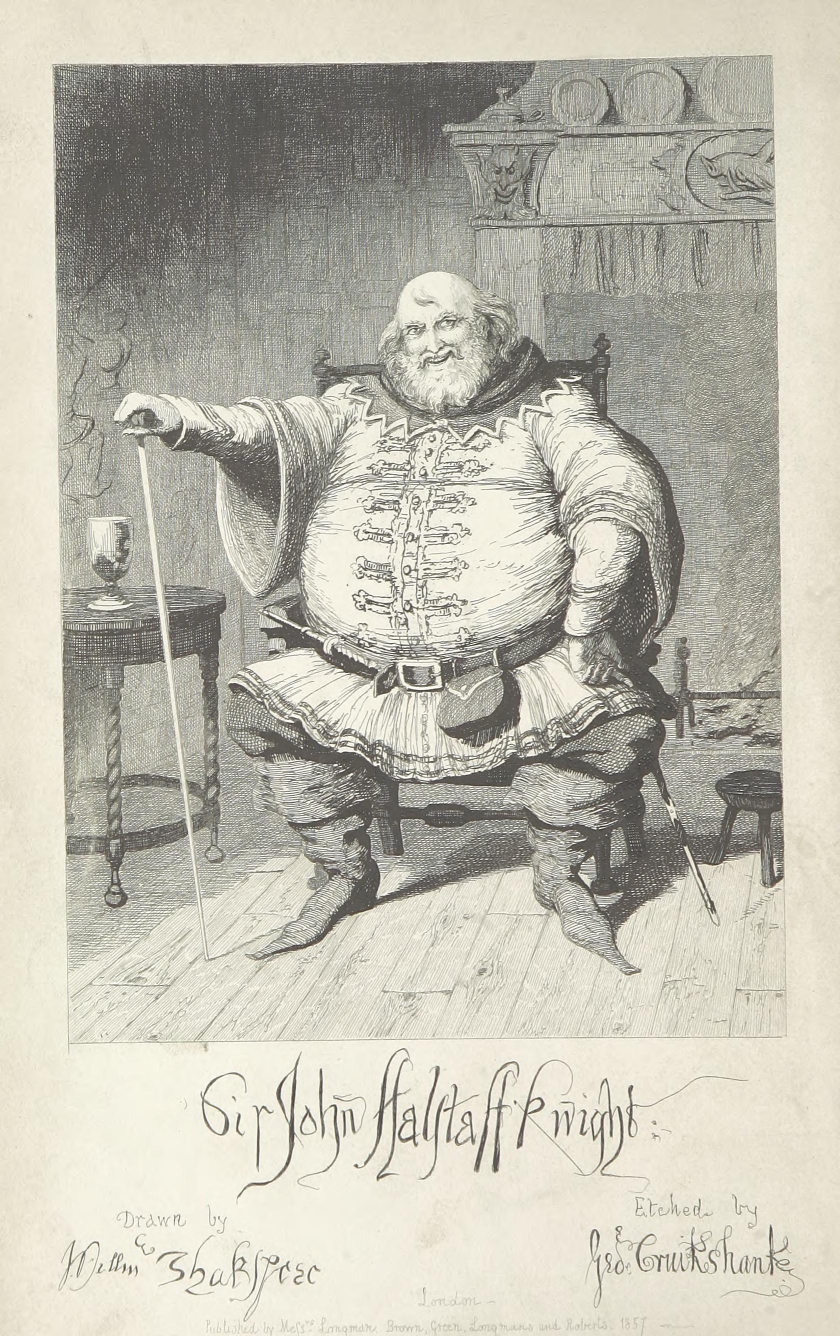[spacer height=”20px”]

[spacer height=”20px”]
Harakiri (a ritualized suicide) became part of the honor code of Samurai warriors and was intended to preserve the warriors honor or to avoid shame. The first recorded incidence of harikari was reported in 1180, and the last reported occurrence was in 1970, a period of nearly 800 years. As practiced, the ritual included formal dress, a last meal, a poem written by the Samurai, and finally the act of harakiri.
Witnesses to harakiri have described the warriors as calm, resolute, and emotionless. The warrior kneels, inserts a knife into his abdomen, and slices it open horizontally. The knife is extracted, his head bows, and his second raises a sword and severs his spinal column. The second is usually a friend of the warriors, but at times it has been an enemy combatant who respected the Samurai’s courage in battle.
Few would argue that honor is a bad thing, but certainly what is considered honorable varies greatly in different societies. The Muslims have a different form of “honor killing.” In the Muslim practice, a man who feels he has been dishonored does not commit suicide; instead, he murders the wife or child, who he claims caused the offense. Among Muslims, it passes for justice, regardless of how the event appears to outsiders.
In western culture, knights established chivalric code around 1170, and it has been refined to mean social and moral values generally. In the middle ages, it was a moral system that included, piety, manners, honor, and nobility. In more modern times, it has been said that chivalry is dead, but still there is a residue of honor that people admire and respect. Honor after all, is a quality that can be possessed by anyone regardless of social status and can be seen at all levels of society.
[spacer height=”20px”]
[spacer height=”20px”]
In 1974, Richard Nixon was president of the United States, and he had become involved in what is referred to as “Watergate.” Apparently, some operatives broke into the Democratic Party Headquarters in an attempt to gain inside information on the Democrats. It is not clear whether Nixon knew of the break in prior to the event, but he eventually found out and attempted to cover up the incident. Some of Nixon’s conversations about the break-in had been recorded on secret White House tape recorders. The FBI wanted the recordings to determine the extent of Nixon’s knowledge, and they were eventually turned over, but 18 and ½ minutes of tape was missing. It was never recovered, and there was much speculation as to the contents. Congress was threatening impeachment, and it was likely they could have convicted. Three days after the release of the tapes, Nixon resigned as president. Was this an honorable thing to do? At the time, few thought so, but he certainly did not drag the office of the president through an impeachment proceeding and saved his party the embarrassment. In retrospect, perhaps it was honorable when you consider the following.
Bill Clinton was serving as president when he had a relationship with a White House intern. He lied repeatedly about the incident and eventually he was impeached. He was not removed from office by a partisan Senate, and he continued to serve as president throughout his term. Certainly, the honorable thing would have been for him to resign, but he was less honorable than Nixon and refused to do so despite the pleadings of his party.
When Bill and Hillary vacated the White House, it was reported that they stole $190,000 worth of china, flatware, rugs, televisions, sofas and other gifts. The Clintons announced they would pay for $86,000 worth of gifts, but they actually returned $28,000 in White House gifts. The Clintons provided no information about the gifts and referred all questions to the President’s transition office. The transition office referred all questions to the Park Service, which actually new very little about the returned gifts.
The General Accounting Office reported that damage, theft, and vandalism did occur in the White House, and that any intentional damage or theft constitutes a criminal act. The accounting office interviewed more than 100 government employees but said it could not establish any responsibility for the damage or theft. Hillary, of course, was rewarded with her election to the Senate by New York voters.
[spacer height=”20px”]

[spacer height=”20px”]
As a senator, she accomplished next to nothing in the senate, but used the position to become Secretary of State. As secretary, she had few successes, but of course, kept her government emails on a private server. Her intention in using the private server was to control what information would become public since she had communications she wanted to hide (as with Nixon, I am guessing). However, when the FBI wanted the contents of her emails, she deleted 30,000 emails before providing the remainder. Remember Nixon deleted 18 and ½ minutes of tape. She lied continuously about the content of the emails claiming there was no classified information, when in fact, there was top secret, secret, and classified emails on the server. Clearly, she violated the law, acted negligently, and lied, but instead of doing the honorable thing and withdrawing her bid for the presidency, she continues on as the Democratic candidate for president. Certainly she does not hold herself to the high standard of the Samurai, knight, or even Nixon. But maybe she just wants to return some of the stolen property to the White House.
[spacer height=”20px”]

Falstaff, a well know character of Shakespeare’s put it best when he said, “It stinks when there is no honor among thieves.”
Until next time…
